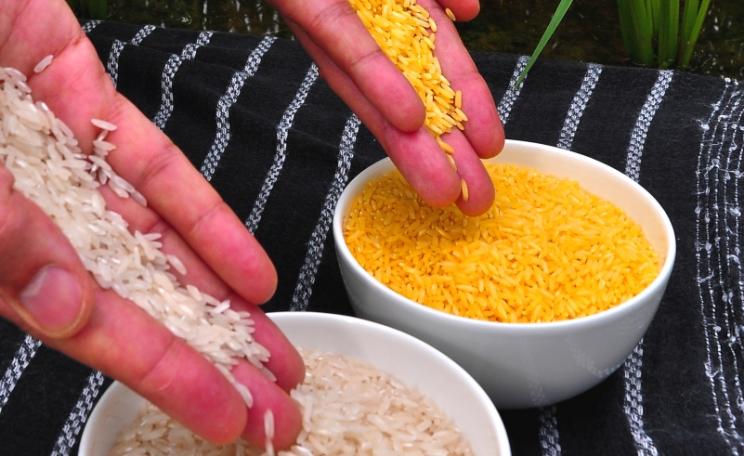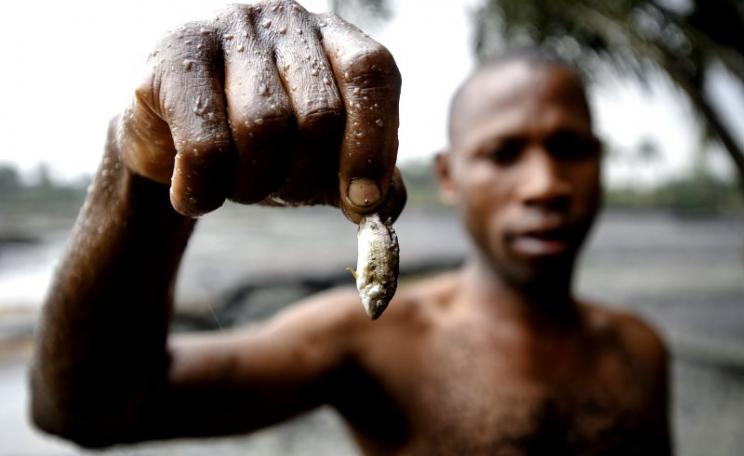Glyphosate is now the most heavily used weed-killer in history, and use is sky-rocketing - nearly 75% of all glyphosate was used in the last 10 years. This huge increase in chemical spraying is what we can expect if GM crops are ever grown in England.
A new paper published this week in Environmental Sciences Europe confirms there has been a dramatic increase in the total volume of glyphosate applied to crops across the world.
Over 70% of the total volume of glyphosate sprayed world-wide over the last 40 years (1974 to 2014) has been sprayed in just the last 10 years.
The paper, 'Trends in glyphosate herbicide' use in the United States and globally, by Charles M. Benbrook, reveals that globally, glyphosate use has risen almost 15-fold since so-called 'Roundup Ready' genetically modified (GM), glyphosate-tolerant crops were introduced in 1996.
Peter Melchett, policy director at the Soil Association said: "This research reveals that Monsanto's glyphosate is now the most heavily used weed-killer in history, and use is sky-rocketing - nearly 75% of all glyphosate ever sprayed on crops was used in the last 10 years. This huge increase in chemical spraying is what we can expect if GM crops are ever grown in England."
After the introduction of 'Roundup ready' crops, genetically modified to survive glyphosate applications, the US has seen a steady increase in the reliance on the herbicide. Whilst GM has been touted by producers as reducing the need for pesticide use, the opposite, has in fact been true.
Herbicide resistant and tolerant 'superweeds' have evolved, causing farmers to spray even more in an attempt to combat the weeds, causing an ever evolving 'arms race' between weeds and pesticides.
With this increasing resistance, the next generation of genetically modified crops will have to withstand being sprayed with a cocktail of stronger herbicides. However this will only cause increasing damage to the environment, ecosystems and human health.
Glyphosate: a perfect storm of problems
The Soil Association also revealed glyphosate is one of the three pesticides regularly found in routine testing of British bread - appearing in up to 30% of samples tested by the Defra committee on Pesticide Residues in Food (PRiF) in recent years. A recent analysis found that 85% of tested products from Warburtons - a well known bread company tested positive for the chemical.
Serious doubts have been cast over the claimed 'safety' of glyphosate. In a US study, three out of ten women tested positive for Glyphosate in breast milk at levels around 1,000 times higher than allowed in drinking water.
Glyphosate is now the most heavily used weed-killer in history, and use is sky-rocketing - nearly 75% of all glyphosate was used in the last 10 years. This huge increase in chemical spraying is what we can expect if GM crops are ever grown in England.
In 2015, the World Health Organisation's International Agency for Research on Cancer (IARC), concluded that glyphosate is "probably carcinogenic to humans", based on an extensive study of peer-reviewed research on actual product formulations.
However the IARC opinion was later contradicted by the European Food Safety Authority, following their own literature review which also included numerous unpublished industry studies. The EFSA analysis also concentrated on the 'active ingredient' glyphosate rather than representative formulations.
The question is moot as the European Commission is shortly to decie on whether to re-licence glyphosate for use within the EU. A letter sent to Commissioner Andriukaitis last week by 65 MEPs demanded a hlt to the approval process so along as
- key studies used for the assessment remain confidential or unpublished,
- glyphosate-containing formulations are not properly and fully assessed,
- the Commission has not adopted specific scientific criteria for the determination of endocrine-disrupting properties.
The figures are stacking up in the UK
The new figures published today come against a background of increased use in the UK. Glyphosate is used in public parks, playgrounds and other urban areas to kill weeds. And in the last year for which government figures are available, nearly a third of UK cereals, wheat and barley, were sprayed with glyphosate - a total of just over one million hectares.
The herbicide is widely used as a 'dessicant' a week or so before harvest to kill and dry fields of arable crops and make then easier to harvest. It is licenced for use on wheat, barley, oats, peas, beans, oilseed rape and other crops. However its use so such a short time before harvest means that residues often remain on the food.
The Soil Association is calling for a UK ban on this use of glyphosate. Figures analysed by the Soil Association from government data last year revealed glyphosate use in UK farming has increased by 400% in the last 20 years.
Peter Melchett explains "As well as being identified as a probable human carcinogen, the research notes that recent studies have made the connection between glyphosate exposure and a number of serious health effects as well as cancer, including the degeneration of the liver and kidney, as well as non-Hodgkin lymphoma.
"The research rightly questions the safety of using glyphosate on crops destined for people to eat just before they are harvested - a growing practice in the UK, which must end."
Vanessa Amaral-Rogers is a freelance journalist writing mainly on environmental themes.
Principal source: the Soil Association.
Also on The Ecologist
- 'Colombia's first steps of resistance against Monsanto's chemical war' by W.T. Whitney Jr
- 'It's not just glyphosate and neonicotinoids! Why we need a pesticide-free future' by Georgina Downs
- 'Roundup - a converging pattern of toxicity from farm to clinic to laboratory' by Dr Eva Sirinathsinghji / ISIS
- 'Naked corruption: the scandal of glyphosate re-assessment in Europe' by Dr Nancy Swanson and Dr Mae Wan Ho
- 'Glyphosate harms bees' spatial learning' by Beyond Pesticides
- 'GMO and glyphosate wars rage'by Oliver Tickell







